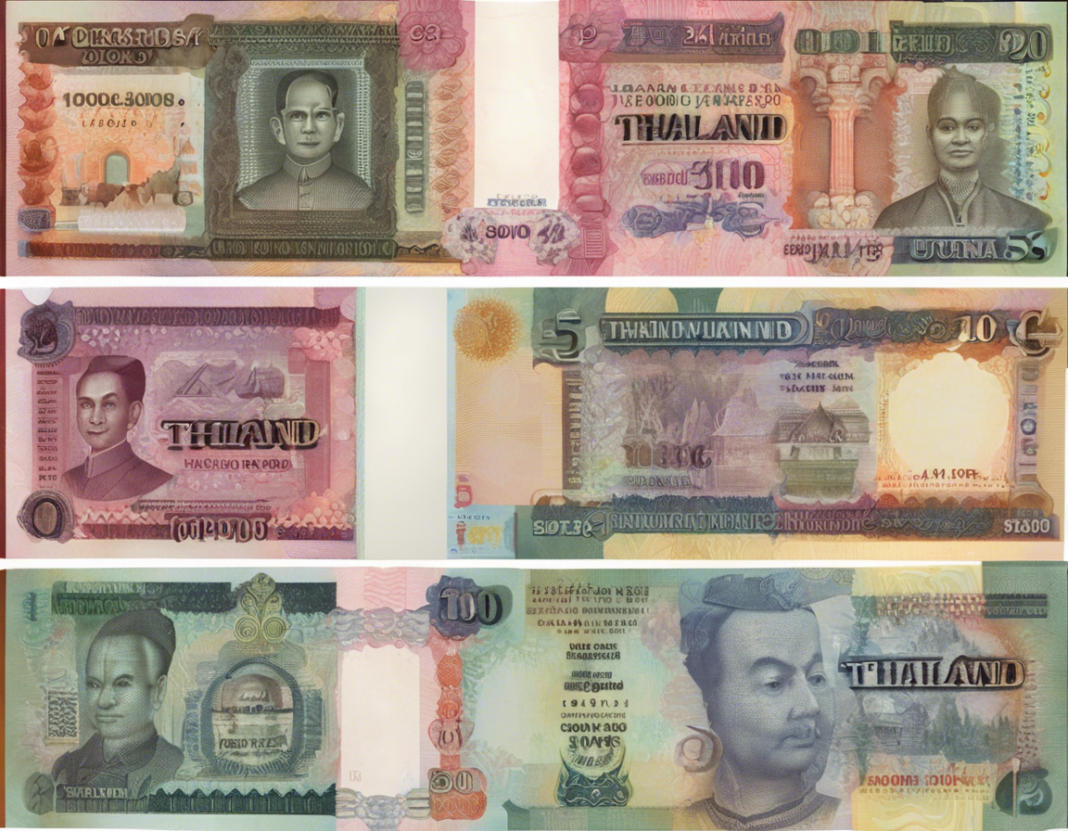Thailand Currency Exchange Rate to INR – Explained!
Traveling to Thailand is a dream for many, with its stunning beaches, rich culture, and mouthwatering cuisine. However, before embarking on your Thai adventure, it’s essential to understand the currency exchange rate to INR if you are coming from India. In this article, we will delve into the factors that influence the exchange rate between the Thai Baht (THB) and the Indian Rupee (INR), how to get the best rates, and tips for managing your money while in Thailand.
Understanding the Thai Baht (THB)
The official currency of Thailand is the Thai Baht, abbreviated as THB. One Baht is subdivided into 100 Satang. The coins in circulation are 25 and 50 Satang, as well as 1, 2, 5, and 10 Baht. Banknotes range from 20 to 1,000 Baht, with different colors and images of the Thai King on each denomination.
Factors Influencing the Exchange Rate
Several factors influence the exchange rate between the Thai Baht and the Indian Rupee. These include:
-
Economic Indicators: Economic indicators such as GDP growth, inflation rates, and unemployment figures can affect the exchange rate.
-
Political Stability: Political stability in both countries can impact investor confidence and, subsequently, the exchange rate.
-
Interest Rates: Discrepancies in interest rates between Thailand and India can lead to changes in the exchange rate.
-
Trade Balances: The trade balance between the two countries can affect the demand for each other’s currencies, influencing the exchange rate.
-
Market Speculation: Speculation in the foreign exchange market can lead to fluctuations in the exchange rate.
How to Get the Best Exchange Rates
Getting the best exchange rates while converting INR to THB involves some strategic planning. Here are a few tips to help you get the most value for your money:
-
Compare Rates: Compare exchange rates offered by banks, exchange counters, and online currency exchange platforms to find the best deal.
-
Avoid Airport Exchange Counters: Exchange rates at airports are generally less favorable. It’s advisable to exchange a small amount for immediate expenses and find a better rate in the city.
-
Use ATMs: Using ATMs in Thailand to withdraw Baht is often more cost-effective than exchanging currency. However, be aware of any foreign transaction fees your bank may charge.
-
Choose Local Currency: When paying by card, opt to pay in Baht rather than your home currency to avoid Dynamic Currency Conversion (DCC) fees.
-
Plan Ahead: Avoid last-minute currency exchanges as you may end up with unfavorable rates. Plan your currency exchange in advance to get the best deals.
Managing Money in Thailand
While in Thailand, it’s essential to manage your money efficiently to avoid any hassles. Here are some tips to help you navigate currency exchange and transactions in the Land of Smiles:
-
Carry Sufficient Cash: While credit cards are widely accepted in urban areas, it’s advisable to carry sufficient cash, especially in rural areas and street markets where cash is preferred.
-
Bargain Wisely: Bargaining is common in Thailand, especially in markets. Familiarize yourself with the local currency and be prepared to negotiate for the best prices.
-
Be Wary of Scams: Be cautious of unauthorized money changers offering attractive rates. Stick to reputable exchange counters or banks for secure transactions.
-
Keep Small Denominations: Break larger bills into smaller denominations for convenience, as many small vendors may not have change for larger bills.
-
Notify Your Bank: Inform your bank of your travel plans to avoid any card blocks due to overseas transactions.
FAQs – Thailand Currency Exchange Rate to INR
-
What is the current exchange rate between THB and INR?
The exchange rate between the Thai Baht and the Indian Rupee fluctuates daily. It’s best to check with your bank or a reliable currency exchange platform for the most up-to-date rates. -
Is it better to exchange money in Thailand or in India before traveling?
Exchanging a small amount for immediate expenses in India and then finding a better rate in Thailand is generally advisable. However, carrying some local currency when you arrive in Thailand is convenient. -
Are credit cards widely accepted in Thailand?
Credit cards are widely accepted in urban areas, upscale restaurants, and hotels. However, smaller vendors and markets may prefer cash. -
How much cash should I carry in Thailand?
It’s recommended to carry a mix of cash and cards. While credit cards are convenient, having cash for smaller transactions is essential, especially in rural areas. -
Are there ATMs readily available in Thailand?
ATMs are widespread in urban areas and tourist destinations in Thailand. However, some ATMs may charge a withdrawal fee, so it’s advisable to check with your bank for any associated charges.
Navigating currency exchange rates and managing money effectively are crucial aspects of traveling to any country, including Thailand. By understanding the exchange rate between the Thai Baht and the Indian Rupee, planning your currency exchanges wisely, and being mindful of transaction methods while in Thailand, you can maximize your travel experience without any financial hiccups.




